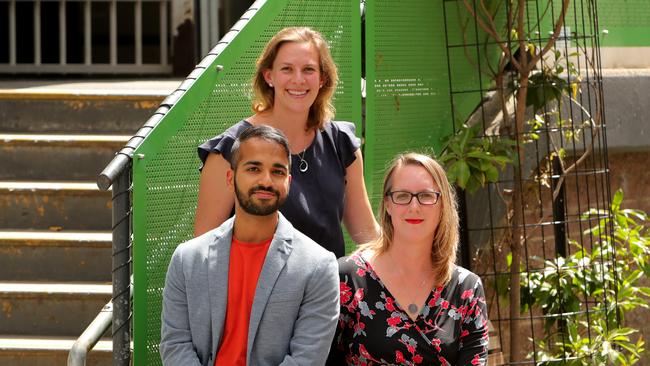‘Just get tested’, Eugene says
It’s breast cancer awareness month and this Melbourne health tech start-up says everyone should get tested for risks, even despite COVID-19.

Melbourne-based tech start-up Eugene is urging people across Australia to take preventive action against breast cancer for breast cancer awareness month, launching an at-home, clinical grade genetic service that looks at 61 genes associated with the most common types of cancer.
Eugene co-founder Kunal Kalro, who launched his company in 2019, said there is growing demand in Australia for next-generation healthcare services like proactive genetic tests and preventive healthcare.
Breast cancer is very common, and one in eight Australian women will be diagnosed in their lifetime. The pandemic has made it harder for people to access medical care focused on early detection and prevention, according to Mr Kalro.
Co-founder Zoë Milgrom pointed to statistics from Cancer Council Victoria showing there had been a drop of up to 37 per cent in reporting of breast cancer during the periods of lockdown due to the COVID-19 pandemic.
“We can’t neglect our health because of this pandemic. We all know someone – a sister, mother, aunt, friend – who’s experienced breast cancer. And while its rare, men too can get breast cancer,” Ms Milgrom said.
“The latest advancements in healthcare make it possible for people to shift the focus of their healthcare from reactive to preventive. But these advancements are often a luxury that are really hard to access. It‘s why most of us end up missing out on valuable info that could help us make the best decisions for ourselves and our families.”
Mr Kalro said the service is completely at-home, with a saliva collection kit mailed to the customer who is then provided with telehealth genetic counselling, what he described as a first in Australia. The sample is then analysed in a diagnostic laboratory and the clinical team at Eugene reviews the genetic test results and personal and family history to help the end user understand their lifetime risk of cancer. Based on the results, Eugene‘s counsellors discuss screening and prevention measures that the user and their doctor can act on.
“Digital healthcare has the potential to accelerate the shift to preventive healthcare, make these advancements accessible to every Australian and improve health outcomes on a national level,” Mr Kalro said.
“It‘s why we started Eugene — to create a healthcare experience that’s focused on prevention, delivered with compassion and accessible to everyone across Australia, whether you live in Mildura or Melbourne.”
Stacey Gadd has been an ambassador for Pink Hope Australia for 10 years, an organisation that supports people who know they have an increased risk of developing breast and ovarian cancer.
“Eugene’s at-home genetic testing for cancer risk is something that anyone can do, considering the information garnered from the test can potentially be lifesaving,” she said. ”My mother had been diagnosed with breast cancer twice before she was even 34 years old, she didn’t know she had inherited a harmful BRCA gene mutation.
“I‘ve known since I was 18 that I have the BRCA gene mutation and I’ve been able to take action in my life to prevent breast cancer. The difference that having my genetic health information has made for me has been life-changing, not only for me but for future generations.”
The Eugene proactive cancer risk test costs $599 from the company’s website.
Eugene’s Medical Adviser on Cancer Genetics, Professor Ingrid Winship AO said that proactive testing can empower people to learn about their potential cancer risks, even if they do not have a strong family history.
Professor Winship, who was awarded Officer of the order of Australia (AO) for her service to medicine, particularly to clinical genetics and research and cancer prevention, said “Eugene offers a forward looking model of care to integrate genomics into everyday healthcare.”


